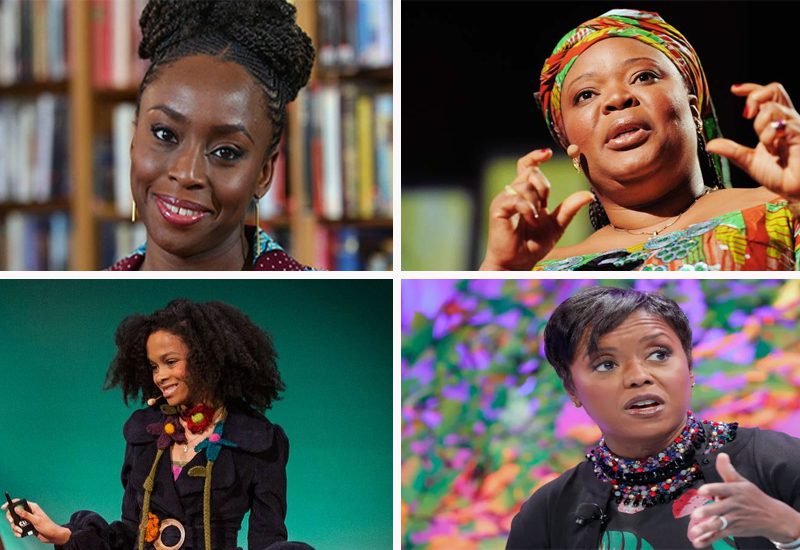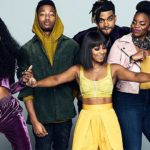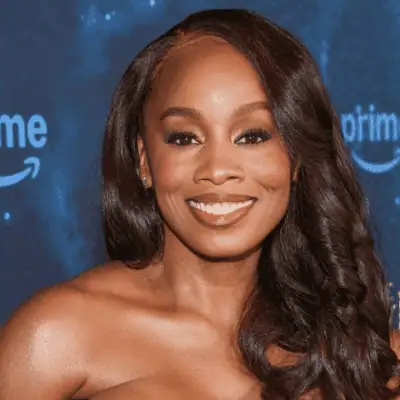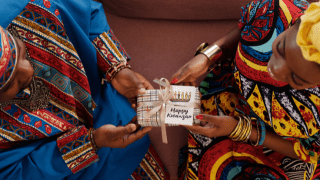
For more than 30 years, TED Talks have granted a global audience with the opportunity to listen to a wide range of culturally diverse speakers discuss a multitude of “ideas worth spreading.” In our current digital age, we now have the ability to watch these conferences instantly, bringing these inspirational talks to our living room and beyond.
In celebration of Women’s History Month, we’re looking back at some of the most gripping TED Talks by exceptional Black women around the world. From educators and activists to novelists and artists, these phenomenal women share their ideas, insightful stories, and perspectives that are certainly worth pondering on.
The danger of the single story | Chimamanda Ngozi Adichie
“Our lives, our cultures, are composed of many overlapping stories. Novelist Chimamanda Adichie tells the story of how she found her authentic cultural voice — and warns that if we hear only a single story about another person or country, we risk a critical misunderstanding.”
Every kid needs a champion | Rita Pierson
“Rita Pierson, a teacher for 40 years, once heard a colleague say, “They don’t pay me to like the kids.” Her response: “Kids don’t learn from people they don’t like.'” A rousing call to educators to believe in their students and actually connect with them on a real, human, personal level.”
Black Girls Code | Kimberly Bryant
“Defy Impossible. Kimberly Bryant founded Black Girls Code to introduce programming and technology to a new generation of coders; coders who will become builders of technological innovation and of their own futures.”
My Story is painted on my body | Chantelle Brown
“What is beauty? What makes someone or something beautiful? It’s in everything you just have to see things differently. Take it from the fashion world’s newest supermodel.”
Unlock the intelligence, passion, greatness of girls | Leymah Gbowee
“Nobel Peace Prize winner Leymah Gbowee has two powerful stories to tell of her own life’s transformation, and of the untapped potential of girls around the world. Can we transform the world by unlocking the greatness of girls?”
Color blind or color brave? | Mellody Hobson
“The subject of race can be very touchy. As finance executive Mellody Hobson says, it’s a “conversational third rail.” But, she says, that’s exactly why we need to start talking about it. In this engaging, persuasive talk, Hobson makes the case that speaking openly about race — and particularly about diversity in hiring — makes for better businesses and a better society.”
Embrace the near win | Sarah Lewis
“At her first museum job, art historian Sarah Lewis noticed something important about an artist she was studying: Not every artwork was a total masterpiece. She asks us to consider the role of the almost-failure, the near win, in our own lives. In our pursuit of success and mastery, is it actually our near wins that push us forward?”
Meet a young entrepreneur, cartoonist, designer, activist | Maya Penn
“Maya Penn started her first company when she was 8 years old, and thinks deeply about how to be responsible both to her customers and to the planet. She shares her story – and some animations, and some designs, and some infectious energy – in this charming talk.”
Fun, fierce and fantastical African art | Wanuri Kahiu
“We’re so used to narratives out of Africa being about war, poverty and devastation, says TED Fellow Wanuri Kahiu. Where’s the fun? Introducing “AfroBubbleGum” — African art that’s vibrant, lighthearted and without a political agenda. Rethink the value of all that is unserious as Kahiu explains why we need art that captures the full range of human experiences to tell the stories of Africa.”
A girl who demanded school | Kakenya Ntaiya
“Kakenya Ntaiya made a deal with her father: She would undergo the traditional Maasai rite of passage of female circumcision if he would let her go to high school. Ntaiya tells the fearless story of continuing on to college, and of working with her village elders to build a school for girls in her community. It’s the educational journey of one that altered the destiny of 125 young women.”






